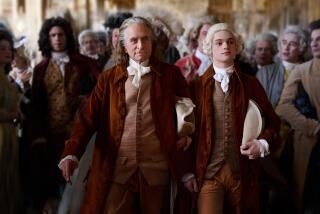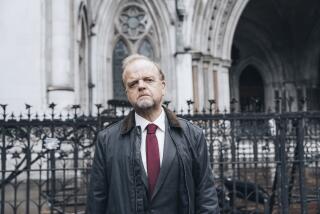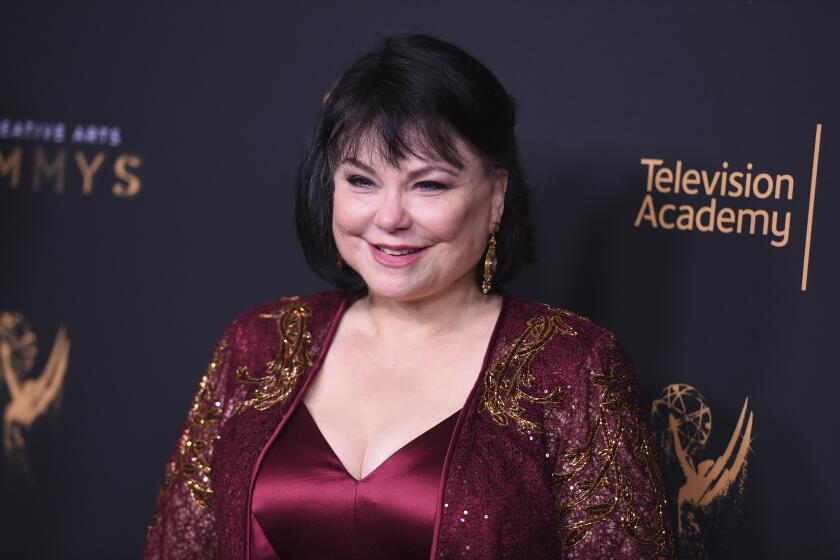Many episodes of Alistair Cooke’s ‘Letter From America’ go online
LONDON — To Americans, he was the quintessential Englishman, whose urbane manner and genteel accent brought British culture into countless U.S. homes each week on the PBS program “Masterpiece Theatre.”
But here in his native land, Alistair Cooke played exactly the opposite role, introducing America to Brits through a sympathetic wit and keen observation that infused a remarkable series of radio broadcasts spanning more than half a century.
“Letter From America,” Cooke’s regular essay on his adopted country, was a mainstay for generations of BBC listeners curious about life on the other side of the Atlantic. From his musings on post-World War II American society to the Sept. 11 terrorist attacks, Cooke used his fireside-chat style to illuminate an increasingly prosperous and powerful nation that for a long time remained somewhat mysterious to the land that spawned it.
PHOTOS: Hollywood back lot moments
The BBC has just announced that its entire archive of Cooke’s “Letter from America” broadcasts — more than 900 surviving episodes out of nearly 2,900 total, from 1946 to shortly before his death in 2004 — is being made available online. The archive can be found at https://www.bbc.co.uk/letterfromamerica.
It’s an absorbing body of work that offers a window onto a country coming into its own as a superpower, though politics was never Cooke’s primary concern.
“Alistair Cooke was one of the glories of the BBC and of British journalism,” Chris Patten, the chairman of the BBC Trust, said at a reception last week marking the launch of the archive. “Nobody will report, I imagine, one country to another with his magisterial prose.”
THE ENVELOPE: Latest awards news
There was, for example, an episode from June 1968 — a “bad night in Los Angeles.”
As Cooke described it: “The button eyes of Ethel Kennedy turned to cinders. She was slapping a young man, and he was saying, ‘Listen, lady, I’m hurt too.’ And down on the greasy floor was a huddle of clothes, and staring out of it the face of Bobby Kennedy, like the stone face of a child lying on a cathedral tomb.”
More than three decades later, Cooke spoke of tragedy again, the one that struck on Sept. 11, 2001, “the most startling, awful morning I can remember.”
“For the first time in American experience, a first act of war aroused — and television pulverized — our senses in a way we had never known,” said Cooke, comparing the sense of fear and uncertainty in the U.S. to London after the first bombs of the Blitz.
But all was not doom and gloom. Cooke also expounded on his friends Bing Crosby and Charlie Chaplin, the civil rights movement, the meaning of Labor Day, the Supreme Court, the O.J. Simpson trial and Haagen-Dazs ice cream.
Particularly during the first few decades, his Sunday morning broadcast was the most exposure to the U.S. that many in Britain would have in an age before easy travel, American pop culture on every TV and movie screen, and the Internet.
GRAPHIC: ‘Downton Abbey’ vs. ‘Walking Dead’
“It would be no exaggeration to say that Cooke transformed the image of America for the ordinary, middle-class Briton,” Alexander Chancellor, a fellow journalist, wrote. “From the beginning until the end of his series of talks, he conveyed an inner certainty that America was the most interesting country on Earth, and many Britons who had never thought so before were persuaded to agree with him.”
A graduate of Cambridge University, Cooke moved to the U.S. in the late 1930s and became an American citizen a few years later. Besides the BBC, he also worked for the Guardian newspaper.
He died in 2004 at the age of 95, leaving an almost matchless transatlantic journalistic and cultural legacy.
“I’ve always found it a neat coincidence that the first ‘Letter’ was broadcast just a few days after Churchill coined the phrase ‘special relationship’” to describe Anglo-American relations, said Barbara Stephenson, the No. 2 at the U.S. Embassy in London.
“No one illuminated the spirit of America and the soul of Americans better. That’s why I like to claim him as one of our greatest diplomats.”
PHOTOS, VIDEOS & MORE:
Timeline: Emmy winners through the years
Celebrity meltdowns
VIDEO: Watch the latest fall TV trailers here
More to Read
The complete guide to home viewing
Get Screen Gab for everything about the TV shows and streaming movies everyone’s talking about.
You may occasionally receive promotional content from the Los Angeles Times.







